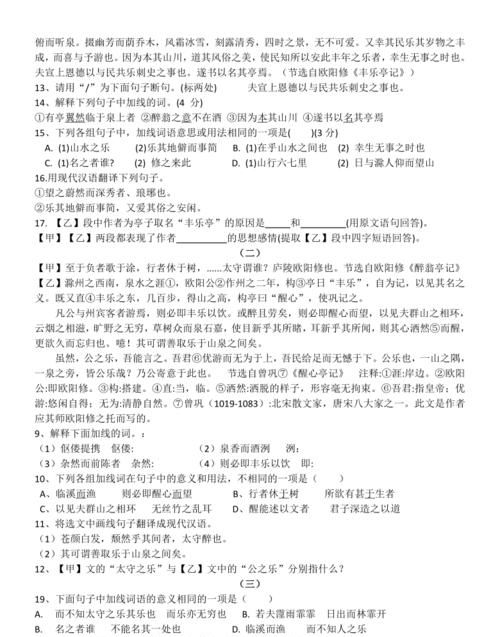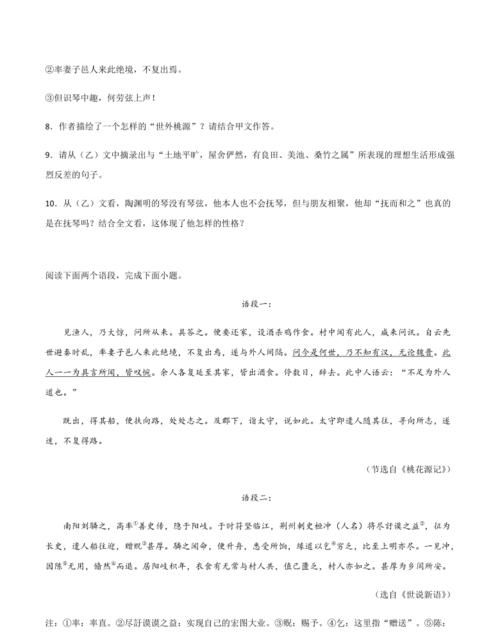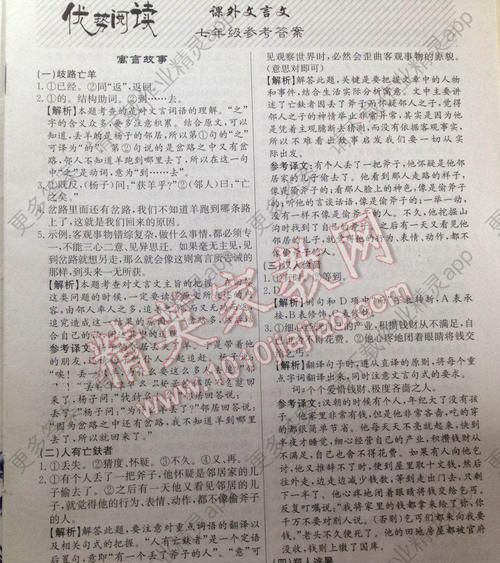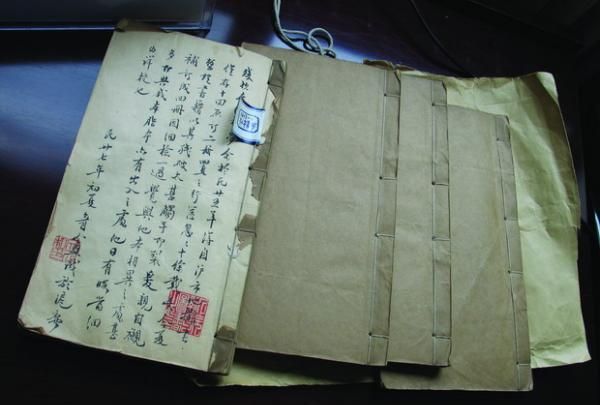Contents of this article
- 1. Translation and original text of Bian He’s Weeping Yu in classical Chinese
- 2. What kind of thoughts and feelings does Bian He Qiyu express?
- 3. The best sound is not suitable for everyone to hear, and the best treasure is not suitable for everyone.
- 4. Comments on translation of Bian He Qiyu
Translation and original text of Bian He's Weeping Yu in classical Chinese
Original text:
Chu He and his family obtained a jade parchment in Chu Mountain and offered it to King Li. King Li asked a jade woman to look at it, and the jade woman said: "It's a stone." The king took He as a lie and cut off his left foot. When King Li died, King Wu came to the throne, and He presented his original body to King Wu. King Wu made a jade woman look at him, and said: "Stone." The king also used He as a deception, and cut off his right foot. King Wu died, and King Wen came to the throne. , He Nai hugged his original daughter and cried at the foot of Chu Mountain. For three days and three nights, he cried out and then shed blood. When the king heard about it, he asked people to ask him why. He said: "There are many people who cut off their heads in the world. I am so sad that I cried." "Is that so?" He said, "I'm not sad for the beheading. I'm sad for my husband's precious jade, so I named it a stone, and for a chaste man to name it a lie. That's why I'm sad." The king asked the jade man to take care of its original shape and found the treasure. Then he ordered: "Heshi's jade."
Translation:
Chu country Heshi got a piece of unprocessed jade in the Chu Mountain, and presented it to King Li. King Li asked the jade worker to appraise it, and the jade worker said : "It's a stone." King Li thought He was deceiving, so he cut off his left foot. When King Li died and King Wu ascended the throne, He presented his raw jade to King Wu. King Wu asked the jade worker to appraise it. , and said: "It's a stone." King Wu thought He was deceiving and cut off his right foot. King Wu died and King Wen came to the throne. He held his jade and cried loudly under the Chu Mountain for three days. At night, his tears dried up and he continued to bleed. After King Wen heard this, he sent someone to ask him why he was crying. He said: "There are many people in the world who have their feet cut off. Why are you crying so sadly?" He said: "I I'm not grieving that my feet were cut off. What I grieve is that the precious jade is called a stone, and the sincere person is called a liar. This is This is the reason for my sorrow." King Wen asked jade workers to work on the stone, and from it he obtained precious jade, which he named "Heshi's Bi."

What kind of thoughts and feelings does Bian He Qiyu express?
Example title: "Horse Theory" concludes the text with the exclamation "There is no horse in the world" and "Wow! Is there really no horse? I really don't know about horses"; "Bian He Weeps for Jade" ends with "The king asked the jade lady to take care of her virginity." "Getting the treasure" is the ending of the He family's presentation of the treasure. What are the differences in the thoughts and feelings expressed in the two texts?
(2006 Yunnan Provincial Curriculum Reform Zone High School Entrance Examination Questions)
[Problem Solving Guide] This question requires you to tell the difference in thoughts and feelings expressed in the two texts. . This requires candidates to first read the two original texts, and then on this basis find out the differences in the thoughts and feelings expressed in the two texts. In "Horse Theory", faced with the fallacy that "there are no horses in the world" that suppresses talents, the article can only sigh, "There are really no horses? I really don't know horses." In "Bian He's Crying Jade", Although Jade Pu was twice dismissed as an ordinary stone, it finally met King Wen and after being carved and processed, it showed its true nature as the world's greatest treasure. "Ma Shuo" makes people feel more resentful and helpless, while "Bian He Crying Jade" can make people see hope.

The most beautiful sound is not suitable for everyone to listen to, and the most precious treasure is not suitable for everyone to listen to.
It is difficult for the unvoiced sound to reach the common ears, so Bo's teeth are cut off in front of the grave; beautiful jade is difficult to recognize when the eyes are dim, so Bian He weeps at the foot of the mountain
A truth
This is related to two allusions.
Zhong Yu Boya in Ziqi
" According to legend, Boya was a famous lyre player in the Spring and Autumn Period, with superb playing skills. In "Gouzi Encouraging Learning Chapter", there is a line: "The drums are played by Guoba and the harps are flowing, and the fish come out to listen. Boya plays the lyre and plays the lyre. The phrase "six horses raised their heads" means that when Laoba plays the harp, even the fish in the water jump out of the water to listen; when Bo Ya plays the harp, the horses that are eating forage also raise their heads to listen. The sound of Boya's piano can imitate many kinds of sounds in nature and can express various emotions. However, few people can understand his music and his meaning. Therefore, he often lamented that he had no sound.
One year, Yu Boya was ordered by the king of Jin to go to Chu as an envoy. After completing his mission, Yu Boya took a boat up the Han River and prepared to return to Jin. But not long after setting off, we encountered heavy rain in Hanyang and had to anchor the ship on the shore. Yu Boya ordered his servant to take out the lyre he carried with him, looked at the mountains next to him, listened to the sound of the waves of the Han River, and played the lyre in the cabin. He was playing, and suddenly, the string broke. According to the saying at the time, the strings would break only if you met someone who understood music and understood the player's state of mind. Boya walked out of the cabin and saw a woodcutter wearing a raincoat and a bucket on his head. This woodcutter was named Zhong Ziqi. He lived by the Han River and made a living by chopping firewood. In his spare time, he liked to read poems and books. I was hiding from the rain nearby when I was attracted by the sound of Yu Boya's piano and came to the boat. Yu Boya asked him: "You listen to me playing the piano, but can you understand the meaning? Zhong Ziqi replied: "Yes." "So, Yu Boya immediately changed the strings. After he played the harp and played a tune, he asked Zhong Ziqi: "What?" Ziqi replied: "It's as tall as a mountain." Boya played another tune on the harp, and Ziqi said, "It's like flowing water." "Yu Boya immediately walked up to Zhong Ziqi, bowed his hands to the ground, and said excitedly: "I finally found a soulmate today! "The allusion of "Zhiyin" comes from this. Boya made an agreement with Ziqi to visit him at his home after the tour. One day, Boya came to Ziqi's home to visit him as promised, but Ziqi had unfortunately passed away due to illness. When Boya heard this, he was so sad that he ran to Ziqi's tomb and played a piece of music full of nostalgia and sorrow for him. Then he stood up and smashed his precious harp in front of Ziqi's tomb. From then on, Boya was insulated from the piano and never played the piano again. "
***/chinaabc/chapter17/chapter170408.htm
***/sgyy/FFFF/FFFFF4.htm
Bian He
"In the Spring and Autumn Period more than 2680 years ago, there was a man named Bian He's people. He found a rough stone in the mountains, thinking that it contained beautiful jade, and presented the jade to King Li of Chu one by one. King Li asked the jade worker to see it, and the jade worker said it was a piece of waste stone. King Li thought Bian He was guilty of deceiving the emperor and ordered Bian He's left foot to be cut off. After King Li died and King Wu came to the throne, Bian He went to present this piece of jade again. King Wu showed the jade worker to a look, but the jade worker said it was a waste stone, so Bian He's right foot was cut off again. After King Wu died, King Wen of Chu came to the throne. Bian He, who had broken his legs, could no longer go. He was so anxious that he hugged Yu Pu and cried under Jingshan Mountain for three days and three nights. He cried until his tears dried up and his eyes bled. Only then did King Chu Wen move. King Wen sent someone to ask him, and Bian He said: "I am not sad because my legs were cut off. It is because it is obviously a jade but it is said to be a waste stone. I am obviously an honest person, but I am considered a liar. I am humiliated." I feel uncomfortable! "King Wen sent a skilled jade craftsman to cut open the jade, and it turned out to be a crystal-clear jade. Then he ordered it to be carved into a wall and named "He's Bi" in memory of the discoverer Bian He. "
***/html/Culture/CGWH/CGRW/2006-10/30/06103010240514430.html
In my words: Elegant music is not in line with everyone's preferences, so Yu Boya stopped playing the piano. . The supreme treasure is not understood by everyone, so Bian He... How to translate "Han Weeping Jade"? Anyway, it is very sad...

Notes on translation of Bian He Qiyu
① Selected from "Han Feizi·Heshi"
②Heshi: According to legend, his name was Bian He, a native of the Chu State in the Spring and Autumn Period, and the discoverer of the Heshi Bi. Pu: A stone containing jade.
③ King Li: King of the Chu Kingdom in the Spring and Autumn Period, named Mao, who reigned from 757 to 741 BC.
④ Appearance: identification, identification
⑤ Jade man: A craftsman who carves jade. Phase: identification.
⑥诳: pronounced kuáng. cheat.
⑦刖: read yuè, an ancient punishment of breaking off the feet.
⑧薨: pronounced hōng. The death of ancient ministers or princes.
⑨ King Wu: named Xiong Tong, reigned from 740 to 690 BC.
⑩King Wen: named Xiong Zui, reigned from 689 to 677 BC.
⑾Crying: This refers to tears.
⑿Xi: Why.
⒀Question: Evaluation, here it means to be judged.
⒁ Chastity: A steadfast person, a loyal and upright person.
⒁ Management: Management, here refers to the carving of rough stones.
⒂Feng: Pronounced pěng, the same as "hold".
⒃Fu: Pronounced fú, modal particle.
(17) Therefore: reason.
(18) So: the reason for….
(19) Pu: A stone containing jade, an unprocessed stone.

The above are all the answers to the classical Chinese reading of Bian He's Crying for Jade, the translation and original text of Bian He's Crying for Jade, as well as the related content about Bian He's Crying for Jade. I hope it can help you.
